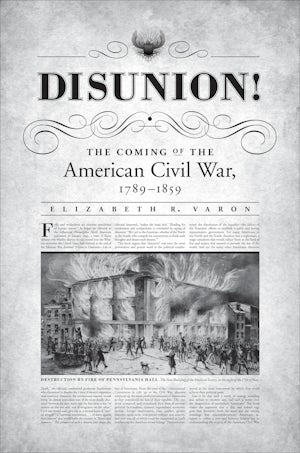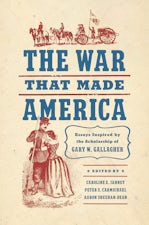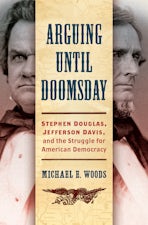Disunion!
The Coming of the American Civil War, 1789-1859
By Elizabeth R. Varon
472 pp., 6.125 x 9.25, 12 illus., notes, bibl., index
-
Paperback ISBN: 978-0-8078-7159-1
Published: September 2010 -
Large Print ISBN: 978-0-8078-6607-8
Published: February 2010 -
E-book EPUB ISBN: 978-0-8078-8718-9
Published: November 2008 -
E-book PDF ISBN: 979-8-8908-7026-1
Published: November 2008
Littlefield History of the Civil War Era
Buy this Book
- Paperback $40.00
- Large Print $60.00
- E-Book $22.99
- Audiobook
For Professors:
Free E-Exam Copies
About the Author
Elizabeth R. Varon is professor of history at Temple University.
For more information about Elizabeth R. Varon, visit
the
Author
Page.
Reviews
"Varon fulfills her goal of distinguishing disunion from secession and exploring the multifaceted meanings of the term. . . . She eminently succeeds in showing how disunion evolved from a 'prophecy' that no one wanted fulfilled to the fire-eaters' 'program.'"—American Historical Review
"A compelling argument about the political significance of language. . . Speaks to specialists and remains approachable for undergraduates, scholars in other fields, and general readers."—Common-Place
"A cogently reasoned intellectual history of a frequently misunderstood historical term. . . . Varon successfully weaves together political debates, contemporary journalism, literary fiction and nonfiction, sermons from pulpits of the nation's leading churches and other sources of popular culture."—Civil War Times
"Varon's success in setting her analysis of disunion rhetoric against a comprehensive historiographical backdrop is exceptional. Meticulously researched and beautifully assembled, Disunion will become a standard text for students and scholars interested in this tumultuous chapter in American history."—North & South
"[A] very important book. . . . Well-written and carefully documented and will be imminently useful to undergraduate and graduate classrooms alike."—Pennsylvania Magazine of History and Biography
"Installs [the premise of disunion] by weaving the country's beginnings with the immediate, and profound, philosophical differences that existed between the agrarian, slaveholding South and the industrialized North."—Anniston Star




